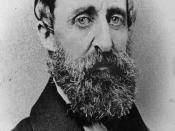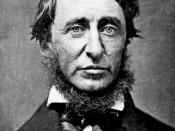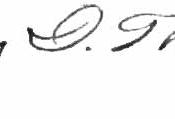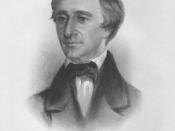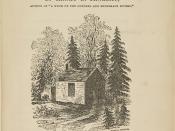The Democratic Spirit of The Jacksonian Age America was becoming more democratic during the Age of Jackson through reforms in Religion- Philosophy such as the introduction of "democratic"ÃÂ religions and viewpoints, social changes which gave people more of the rights they deserved, and political reforms which got more people involved in politics and more specifically voting.
One of the reforms occurring during this age was a philosophical viewpoint that was pioneered by men such as Henry David Thoreau and Ralph Emerson. This viewpoint was called transcendentalism and the people believing in it were known as transcendentalists. These transcendentalists believed that the most important truths in life went beyond human understanding and brought together all people regardless of status. Transcendentalists also believed that all people were equal and they could control their own fate because everyone has some of God in him. This is why it was considered democratic, because even if you were poor you were believed to have the same ability to control your fate as rich people were.
In addition to transcendentalism, two new religions surfaced during this era, which were considered to be very democratic. These two religions were called Unitarianism and Universalism. Unitarianists believe in one "equal opportunity"ÃÂ God. The Universalists believed that everyone goes to heaven. These religions are about as democratic as can be. They were certainly more democratic than the Puritan belief of predestination of earlier times. They reflect the democratic era because they say that God does not favor anyone, nor does anyone have less of a chance of going to heaven. Everyone was on equal terms, which is the idea of democracy.
Many social reforms also occurred during this time that gave people that were previously denied rights, the rights they deserved. For example, prior to this age women had no rights. They were not allowed to vote, run for office, or own property. They simply held medial jobs such as a housekeeper or a seamstress. However women began holding conventions about what their rights should be. They soon began to have rights to own property, and to go to college. Another group of people previously denied rights were the mentally ill. These people were feared and considered insane. They were thrown into prisons and tortured or thrown into mental institutions where they were looked down upon. However all this changed when a woman named Dorthea Dix who had been studying the ill, began reporting her findings around the country. People soon stopped fearing them and began showing them fairness and justice and gave them the dignity they deserved. In both of these cases, people are being given rights that bring the entire nation closer to equality, the foundation of democracy.
Another social reform included changes in prisons and the punishments given for crimes. In earlier times, children were thrown in jail with adults. These children, along with the other prisoners were treated inhumanely and many were being given capital punishment for petty crimes such as stealing a loaf of bread. People began to see that even criminals deserved rights. They began putting children into separate prisons where they were given humane treatment. Capital punishment was also given less frequently. These reforms reflected democracy because they made sure that even criminals were given rights. There were also reforms made in labor. Many laws regarding child labor were introduced and people asked for shorter workdays and better treatment of workers, once again reflecting democracy in that the people were able to decide what was best for them by exercising the rights they have in a democratic nation. The final social reform regarded temperance, or the consumption of alcohol. At this time alcohol was widespread throughout the nation. The average per capita consumption of alcohol was 7- 10 gallons in 1830. However by 1850, after preaching against alcohol for twenty years the nations per capita consumption dropped to 2 gallons. This reflected democracy because it showed the people were able to solve a widespread problem and this in turn indicated that democracy would work and that the people are capable of running a nation.
In addition to both social and political-religious reforms, many reforms occurred in politics that allowed more people to vote and become more involved in the government. For example both the land and religion requirement for voting eligibility were eliminated. This made for a more democratic nation because the government was no longer singling out those who could vote on the basis of land ownership or religion. Also, national nominating conventions were established which gave people the opportunity to see for themselves what a candidate had to offer. Voting tickets were also established so people could vote for the candidate they wanted without fear of being influenced by others. These establishments moved us closer to democracy because they gave people the right to make their own political decisions. Finally, one of the most important democratic rights given to the people was free education. Education can be considered a political reform because in order for a democratic nation to successfully run, the people must be intelligent enough to make good political decisions. Thus free education was established to ensure this.
The Age of Jackson was a crucial age in American history because through the many philosophical, religious, social and political reforms occurring during this era, the foundation for democracy was established.
